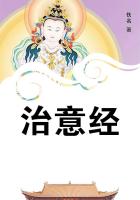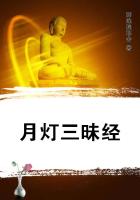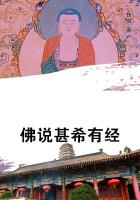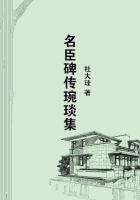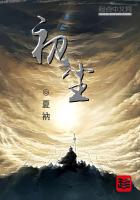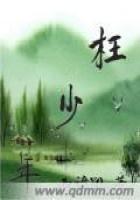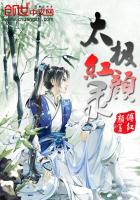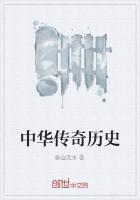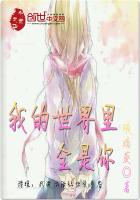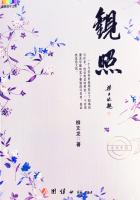I HEAR that B----- directed to have himself buried on the edge of the pond where his duck-stand was located, in order that flocks of migrat-ing birds might fly over his grave every autumn.
He did not have to die, to become a dead shot.
A comrade once said of him: "Yes, B----- is a great sportsman. He has peppered every-thing from grouse in North Dakota to his best friend in the Maine woods."
WHEN the novelist introduces a bore into his novel he must not let him bore the reader. The fellow must be made amusing, which he would not be in real life. In nine cases out of ten an exact reproduction of real life would prove tedious. Facts are not necessarily valuable, and frequently they add nothing to fiction. The art of the realistic novelist sometimes seems akin to that of the Chinese tailor who perpetuated the old patch on the new trousers. True art selects and paraphrases, but seldom gives a verbatim translation.
THE last meeting I had with Lowell was in the north room of his house at Elmwood, the sleep-ing-room I had occupied during a two years'
tenancy of the place in his absence abroad. He was lying half propped up in bed, convales-cing from one of the severe attacks that were ultimately to prove fatal. Near the bed was a chair on which stood a marine picture in aqua-relle--a stretch of calm sea, a bit of rocky shore in the foreground, if I remember, and a vessel at anchor. The afternoon sunlight, falling through the window, cast a bloom over the pic-ture, which was turned toward Lowell. From time to time, as he spoke, his eyes rested thoughtfully on the water-color. A friend, he said, had just sent it to him. It seemed to me then, and the fancy has often haunted me since, that that ship, in the golden haze, with top-sails loosened, was waiting to bear his spirit away.
CIVILIZATION is the lamb's skin in which bar-barism masquerades. If somebody has already said that, I forgive him the mortification he causes me. At the beginning of the twentieth century barbarism can throw off its gentle dis-guise, and burn a man at the stake as compla-cently as in the Middle Ages.
WHAT is slang in one age sometimes goes into the vocabulary of the purist in the next. On the other hand, expressions that once were not considered inelegant are looked at askance in the period following. The word "brass" was formerly an accepted synonym for money; but at present, when it takes on that significance, it is not admitted into genteel circles of language.
It may be said to have seen better days, like another word I have in mind--a word that has become slang, employed in the sense which once did not exclude it from very good society.
A friend lately informed me that he had "fired"
his housekeeper--that is, dismissed her. He little dreamed that he was speaking excellent Elizabethan.
THE "Journal des Goncourt" is crowded with beautiful and hideous things, like a Japanese Museum.
"AND she shuddered as she sat, still silent, on her seat, and he saw that she shuddered." This is from Anthony Trollope's novel, "Can You Forgive Her?" Can you forgive him? is the next question.
A LITTLE thing may be perfect, but perfection is not a little thing. Possessing this quality, a trifle "no bigger than an agate-stone on the forefinger of an alderman" shall outlast the Pyramids. The world will have forgotten all the great masterpieces of literature when it for-gets Lovelace's three verses to Lucasta on his going to the wars. More durable than marble or bronze are the words, "I could not love thee, deare, so much, loved I not honor more."
I CALLED on the dear old doctor this afternoon to say good-by. I shall probably not find him here when I come back from the long voyage which I have in front of me. He is very fragile, and looks as though a puff of wind would blow him away. He said himself, with his old-time cheerfulness, that he was attached to this earth by only a little piece of twine. He has percep-tibly failed since I saw him a month ago; but he was full of the wise and radiant talk to which all the world has listened, and will miss. I
found him absorbed in a newly made card-cata-logue of his library. "It was absurd of me to have it done," he remarked. "What I really require is a little bookcase holding only two volumes; then I could go from one to the other in alternation and always find each book as fresh as if I never had read it." This arraignment of his memory was in pure jest, for the doctor's mind was to the end like an unclouded crystal.
It was interesting to note how he studied him-self, taking his own pulse, as it were, and diag-nosing his own case in a sort of scientific, impersonal way, as if it were somebody else's case and he were the consulting specialist. I
intended to spend a quarter of an hour with him, and he kept me three hours. I went there rather depressed, but I returned home leavened with his good spirits, which, I think, will never desert him, here or hereafter. To keep the heart unwrinkled, to be hopeful, kindly, cheerful, reverent--that is to triumph over old age.
THE thing one reads and likes, and then forgets, is of no account. The thing that stays, and haunts one, and refuses to be forgotten, that is the sincere thing. I am describing the impres-sion left upon me by Mr. Howells's blank-verse sketch called "Father and Mother: A Mystery"
--a strangely touching and imaginative piece of work, not unlike in effect to some of Mae-terlinck's psychical dramas. As I read on, I
seemed to be standing in a shadow cast by some half-remembered experience of my own in a previous state of existence. When I went to bed that night I had to lie awake and think it over as an event that had actually befallen me.
I should call the effect <i>weird</i>, if the word had not lately been worked to death. The gloom of Poe and the spirituality of Hawthorne touch cold finger-tips in those three or four pages.
FOR a character-study--a man made up en-tirely of limitations. His conservatism and neg-ative qualities to be represented as causing him to attain success where men of conviction and real ability fail of it.

